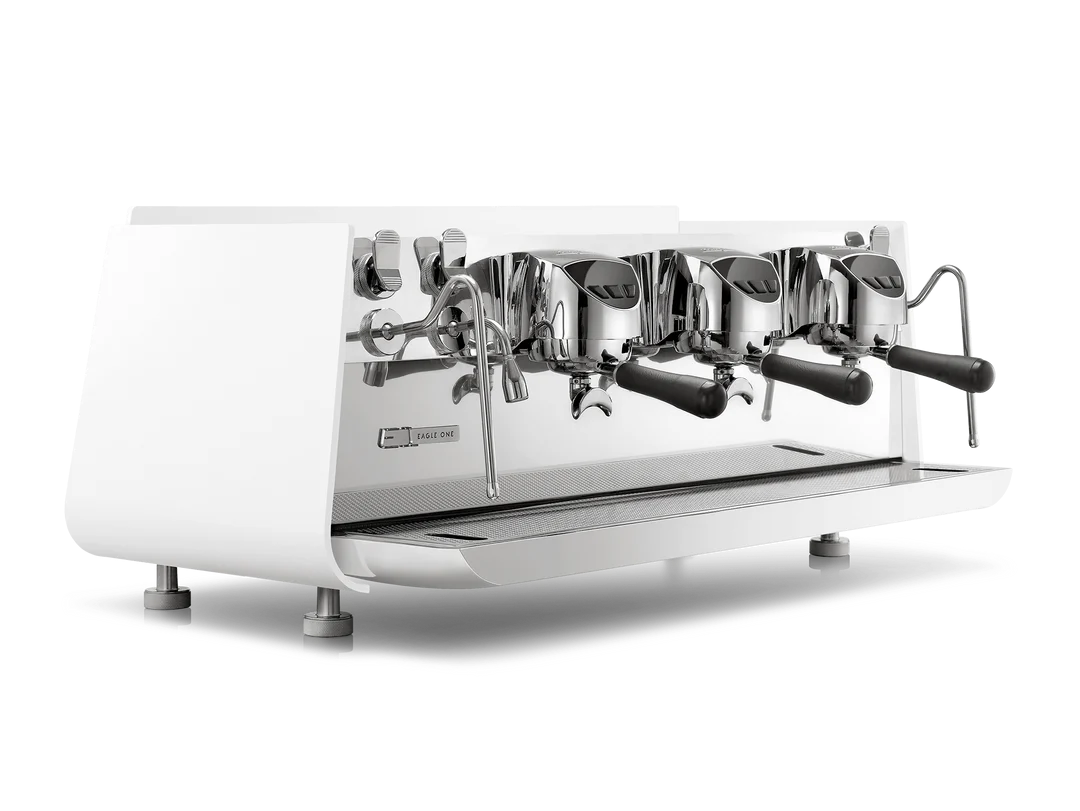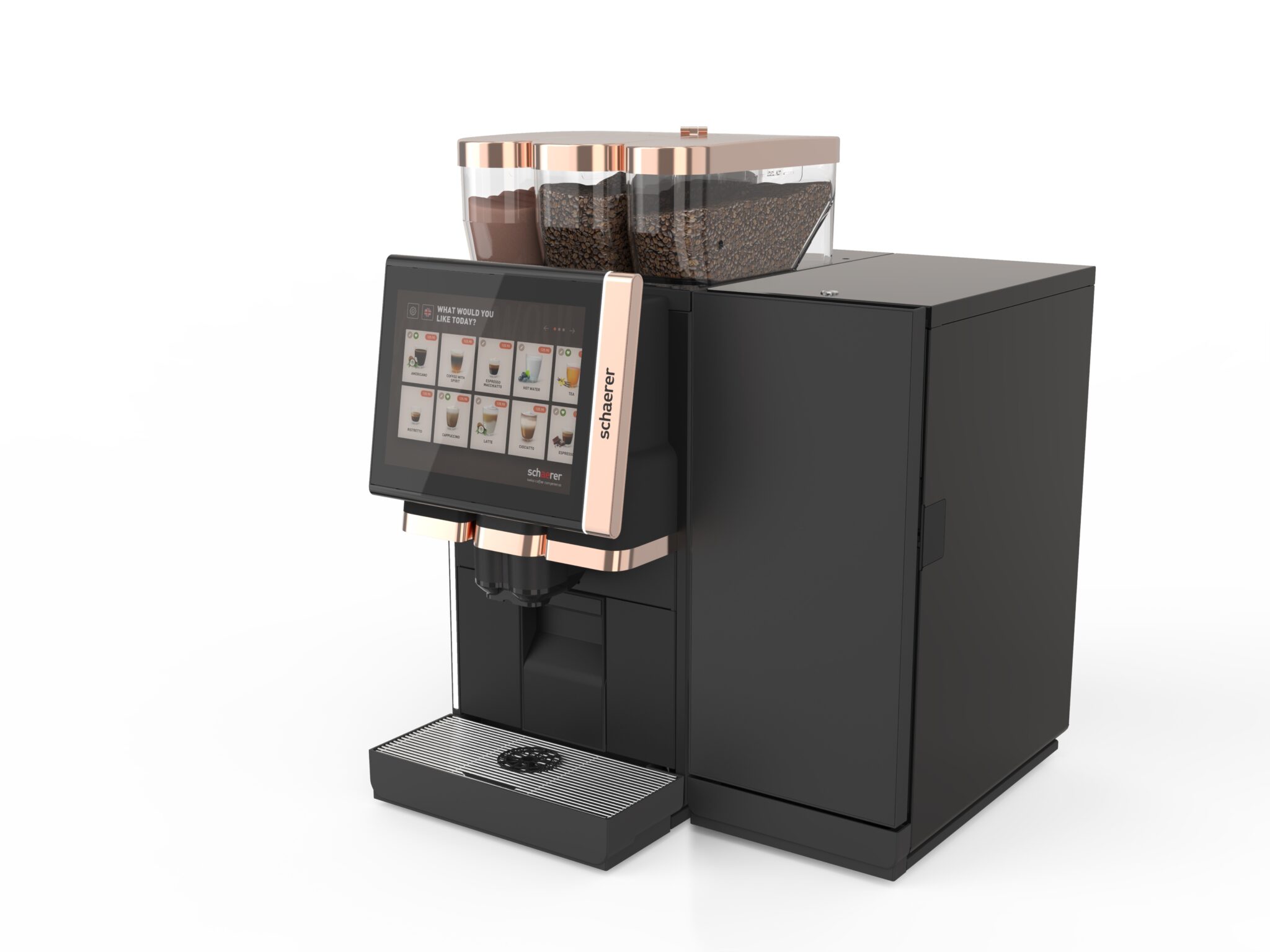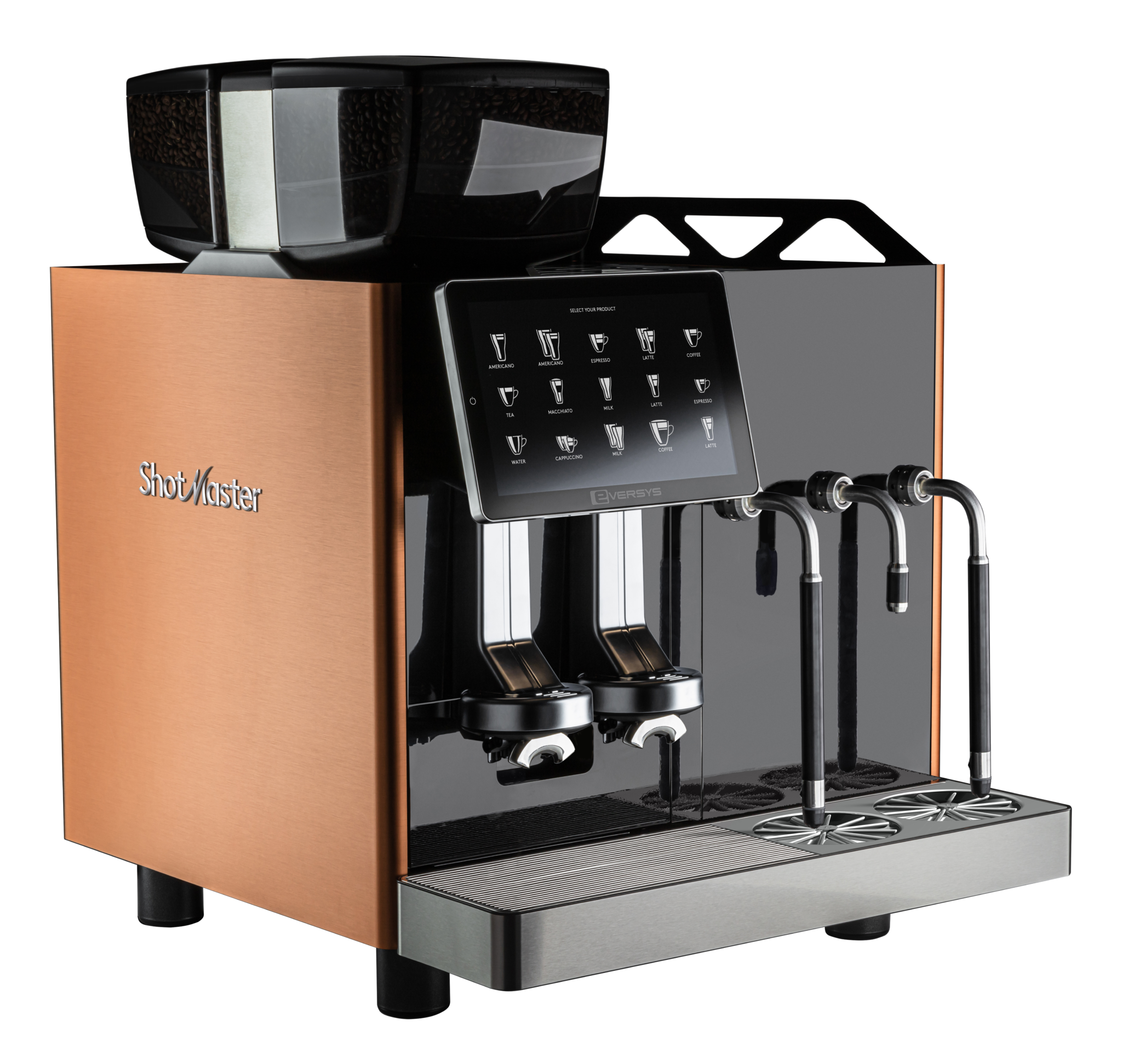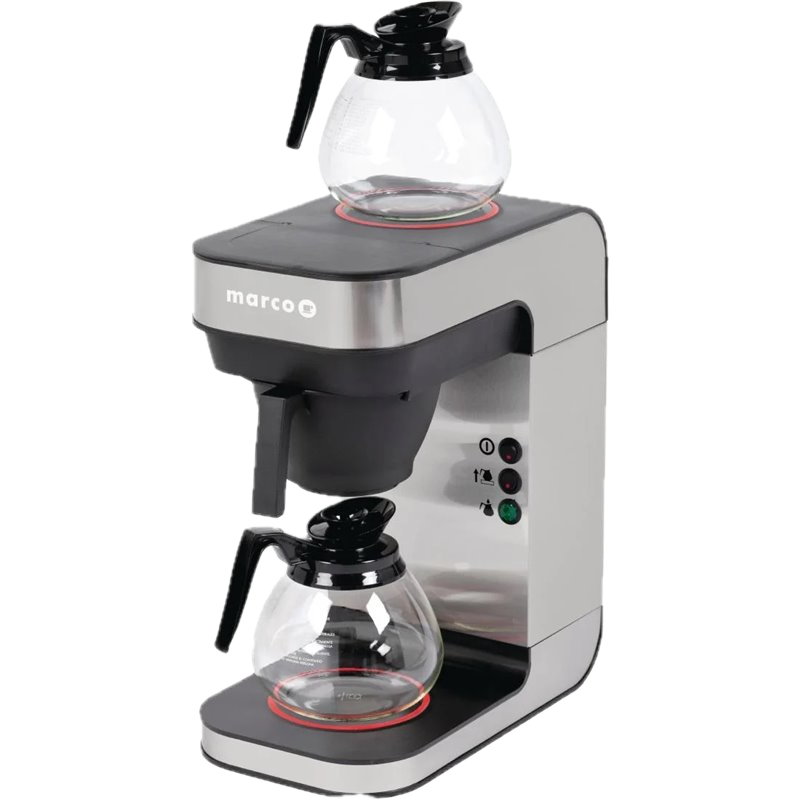So, you’re ready to purchase a new coffee machine for your business, but you’re not entirely certain of what to look for. Investing in the right equipment for your specific needs can either make or break a business, and the same is true for commercial coffee machines.
With so much choice on the market, from traditional espresso machines to automatic bean-to-cup options, choosing the best coffee machine for your business can often feel like a daunting task – especially if you’re not well-versed in the world of coffee machines.
In this article, we’ll walk you through the essential factors to consider when selecting a commercial coffee machine, breaking down the key features, benefits, and drawbacks of each, to give you a clear understanding and therefore make a well-informed decision.
If you need further guidance, our team has helped hundreds of businesses like yours select the right coffee machine for their needs. Please feel free to get in touch for tailored advice and support.
The Different Types of Commercial Coffee Machine
When looking to invest in a coffee machine for your business, there are four main types that you’ll need to consider:
- Traditional Espresso Machine
- Commercial Bean-to-cup Machines
- Super Automatic Espresso Machines
- Commercial Filter Coffee Machines
Each type has its own specific use case, with positive and negative attributes to ownership. Keep reading to find out about the different types of commercial coffee machines available to you and which kinds of businesses they might be best suited for.

Traditional Espresso Machines
An espresso machine is the quintessential professional coffee machine, used by baristas around the world to craft high quality espresso-based coffee drinks – think your cappuccinos, flat whites and lattes.
Finely ground coffee is brewed under pressure to create a small, strong coffee known as an espresso, before being turned into a wide range of drinks with milk or additional water. These machines typically feature 1 to 3 coffee brewing group heads, high pressure steam wands to heat and froth your milk, and hot water taps to help serve teas and americanos.
Traditional espresso machines are loved for their ability to create the highest coffee quality possible and providing ultimate drink customisation, so can be a great option if you have skilled, passionate baristas. They can be complicated for inexperienced teams, so this is something to consider.
Upsides:
- Highest quality coffee
- Ultimate control over recipes and drink customisation
- High capacity machines
- Low maintenance costs and a long lifespan
- Allows the delivery of a personalised service
- Options to suit any budget
Downsides:
- Requires a skilled barista
- Steep learning curve
- Need for additional barista tools
- Does not grind coffee, external grinder required
- Can take up a good amount of counter space

Commercial Bean-to-Cup Machines
A ‘bean-to-cup’ coffee machine is one that takes full control of the brewing process from start to finish, save from pouring in the beans and selecting a drink from the menu. Bean-to-cup machines brew a wide range of drinks using freshly ground coffee beans. Milk is typically heated and frothed inside the machine and poured over top of the coffee.
The market for bean-to-cup machines is incredibly varied with a number of price options, making them a perfect choice for businesses that want to offer a range of delicious coffees at the press of a button without needing a skilled barista.
The most premium bean-to-cup machines offer multiple bean hoppers for two or more types of coffee, twin milk systems for dairy and alternative options, and often even powder units for hot chocolate.
Things to watch out for with bean-to-cup machines includes the need for a high level of cleaning, with built-in milk systems being prone to issues if not cleaned and looked after on a daily basis.
The other main drawback is that, whilst the drink quality can often be impressive, users are typically locked out of changing the brewing parameters to improve or customise the drink selections.
Upsides:
- Great for self-service
- Options to suit any budget
- Fully automated
- Intuitive operation
- Range of drink options
- Grinds the coffee fresh
- Consistent coffee quality
Downsides:
- Limit on drink selection
- Difficult to achieve a high level of coffee quality
- Requires daily cleaning and regular maintenance
- Typically lower drink capacity than espresso machines
- Require specialist technicians to repair

Super Automatic Espresso Machines
Super automatics are a relatively new breed of commercial coffee machine that have really come into focus over the last decade.
You can essentially view them as taking the best parts of traditional espresso machines and bean-to-cup machines, combining them into highly capable automatic machines that brew barista-quality coffees.
The most premium category of machines on the market, Super Automatic coffee machines feature automatic milk steaming systems allowing for intricate latte art patterns, automatic cleaning features to make upkeep and maintenance a walk in the park, and coffee extraction features that constantly monitor and control all aspects of the brew to maintain high quality drinks, much like a well-trained barista.
Upsides:
- Impressive barista quality drinks
- High capacity
- Automatically adjusts throughout the day to ensure consistency
- Industry-leading automatic milk steaming features
- Ease of use
- Ideal for staff operated or self-serve
- Cleaning features to ensure a high level of upkeep
- Easily serviced, modular parts
Downsides:
- High upfront capital investment
- Loses a touch of the craft vs traditional espresso
- Large footprint

Commercial Filter Coffee Brewers
Filter coffee machines are typically found in locations where a large amount of coffee needs to be served quickly and easily, such as in hotel breakfast bars, offices or events where customers can pour and help themselves to a delicious cup of coffee.
In short, a filter coffee machine works by pouring hot water over a bed of coffee before passing through a paper filter to separate the grounds from the liquid.
The resulting drink, often referred to as filter coffee, bulk brew, batch brew, drip coffee or diner style coffee, is a black coffee that can either be served on its own or topped with a splash of milk, sugar or sweetener.
Filter coffee brewers range in size, price and features, but are typically an affordable and convenient solution for brewing large cups of easy-to-serve coffee. Filter coffee machines are also fantastic options to have as secondary machines during the morning rush for customers who want a quick coffee on the go thanks to their speed of service.
Upsides:
- Speed of service
- Affordable options
- Self-serve
- Potential for delicious coffees
- Large batches
- Ease of use
Downsides:
- Limited drink variations
- Brew times typically 5-10 minutes
Key Considerations for Selecting the Best Type of Commercial Coffee Machine for your Business
Now that you have more of an understanding around the different types of coffee machines on offer, let’s get into the questions you need to ask during the decision making process.
Bear in mind, many businesses we work with have a combination of different coffee machine types around their outlets. For example, a hotel might require a traditional espresso machine for their downstairs cafe/bar, a filter coffee machine in the kitchen for the breakfast buffet, a bean-to-cup machine for their conference room, along with a number of domestic pod machines for the bedrooms. So, when designing your ideal machine setup, here are a few things to consider:
What type of drinks do you want to serve?
Make sure to consider the types of coffees you’ll want to serve, and whether having a standardised and consistent menu will be of benefit, or if you’ll want the option of tailoring the perfect drink for each customer.
Traditional espresso machines provide the ultimate flexibility in the range of drinks, whilst filter coffee machines on the other end of the spectrum are capable of brewing just one type of coffee (black).
Bean-to-cup machines and super automatic machines do typically offer some level of customisation, but are typically used to serve a small selection of standardised drinks for your customers.
How important is coffee quality?
This may sound like a ridiculous question to ask, as most people will typically be hoping to serve good quality coffee. However, when it comes to buying a commercial coffee machine, the options that allow for the highest quality drinks come with their drawbacks.
A traditional espresso machine can brew great quality coffees, but not without a well-trained barista who knows what they’re doing, so this can require barista training commitments and can make recruitment more challenging.
Similarly, a super automatic machine can brew great tasting coffees without needing a barista’s input, but come with the downside of a much higher price tag.
Of course, you’ll want to serve good quality coffees – and that’s easily done with all types of commercial coffee machines when you’re using great wholesale coffee beans. However, you should consider how important having the highest quality coffee possible is to the success of your outlet.
Will you have time to train baristas/ staff?
As we have discussed, some commercial coffee machines require a skilled barista or member of staff to get the best out of them. You therefore need to ask yourself, will you be able to set aside the time or cost of training / recruiting skilled staff? And would you prefer a machine that is easier to operate with a lower barrier to entry?
For many businesses in hospitality, staff turnover is a major issue, and having a commercial coffee machine that is easy to use and requires little training is a major consideration factor in the coffee machine they choose.
Expected demand for drinks
The next consideration to keep in mind is the number of coffees you expect to be serving per day. This can vary wildly, with high footfall cafes easily serving several hundred drinks per day, versus an small office bean-to-cup machine that may only serve 25-50 drinks.
There are a wide range of options in all machine categories depending on the daily cup capacity you’ll be catering for, but you’ll typically find that traditional espresso machines give you the best bang for your buck in terms of drink speed and daily coffee output.
In some cases you’ll want the option of serving a large number of coffees all at the same time, and in this instance a filter coffee brewer paired with a number of thermoses could be a great option to eliminate wait times.
How much can you invest?
The amount of budget you can set aside for your investment is going to dictate what kind of machine you buy, as the price for commercial coffee machines can vary substantially. Consider whether you are looking for a cheaper, more affordable entry level option that can currently meet your needs, or whether you want to invest more and set yourself up for growth potential into the future.
Be mindful of the fact that there are a number of finance options available for purchasing a commercial coffee machine, and that you can avoid paying a large upfront cost by spreading the payment over a 3 or 5 year lease plan.
Learn more here -> How to Lease a Coffee Machine.
What’s your long term goal?
Think a few years down the line, where do you see your coffee outlet taking you? Are you looking for a basic coffee setup to keep your stakeholders caffeinated, or do you want to make coffee a large part of your brand experience and something your business is known for.
There’s no right or wrong answer, a large segment of businesses looking for a coffee machine just want a simple solution that won’t be a large contributor to their overall business plan. For these people, a simple filter coffee or bean-to-cup solution could be absolutely perfect.
However, some businesses we consult with are looking for coffee to be a major factor in their brand experience and revenue in 3-5 years time.
If that’s you, you’ll want to invest more into a machine setup that can grow and scale with your business, along with a wholesale coffee, cafe supplies and marketing materials to make coffee a central part of your business.
Upkeep and Maintenance
Every commercial coffee machine requires some level of cleaning, servicing and maintenance to stay in perfect working order and brewing the best possible coffees. The amount of upkeep and cleaning, and the regularity of service and maintenance callouts will vary depending on the type of machine you choose.
We typically recommend that every commercial coffee machine is cleaned on a daily basis, with bean-to-cup machines and super automatics walking the user through this process and the right chemicals to use. Every machine should be serviced annually, and a team of well-trained coffee engineers will perform pressure vessel inspections and proactive maintenance every 12 months.
When deciding on which coffee machine to buy and who to buy it from, make sure you know what is needed from a cleaning and upkeep perspective, and that the company has a field service team that can respond quickly in case of any machine down-time.
Partnering with Bridge Coffee Roasters to choose the best commercial coffee machine
So, you should now have a solid understanding of the different types of commercial coffee machines available on the market, who they’re best suited for, and the key considerations to make when deciding which coffee machine to buy for your business.
If you want to explore your options or find a coffee machine that is perfectly suited to your needs, make sure to partner with a trusted wholesale coffee machine provider like Bridge Coffee Roasters.
Since 1985, we’ve been helping businesses turn coffee into a positive revenue driver and brand touchpoint by making sure to select the right machines for their needs. To start your journey, get in touch with our team of coffee experts here.
Let's Help you Make the Right Choice
Knowing which type of coffee machine to invest in can feel overwhelming. Luckily, we're here to help. Join the hundreds of businesses who have made smart investments into their coffee setup by enlisting the help of our experts.
Get in touch


